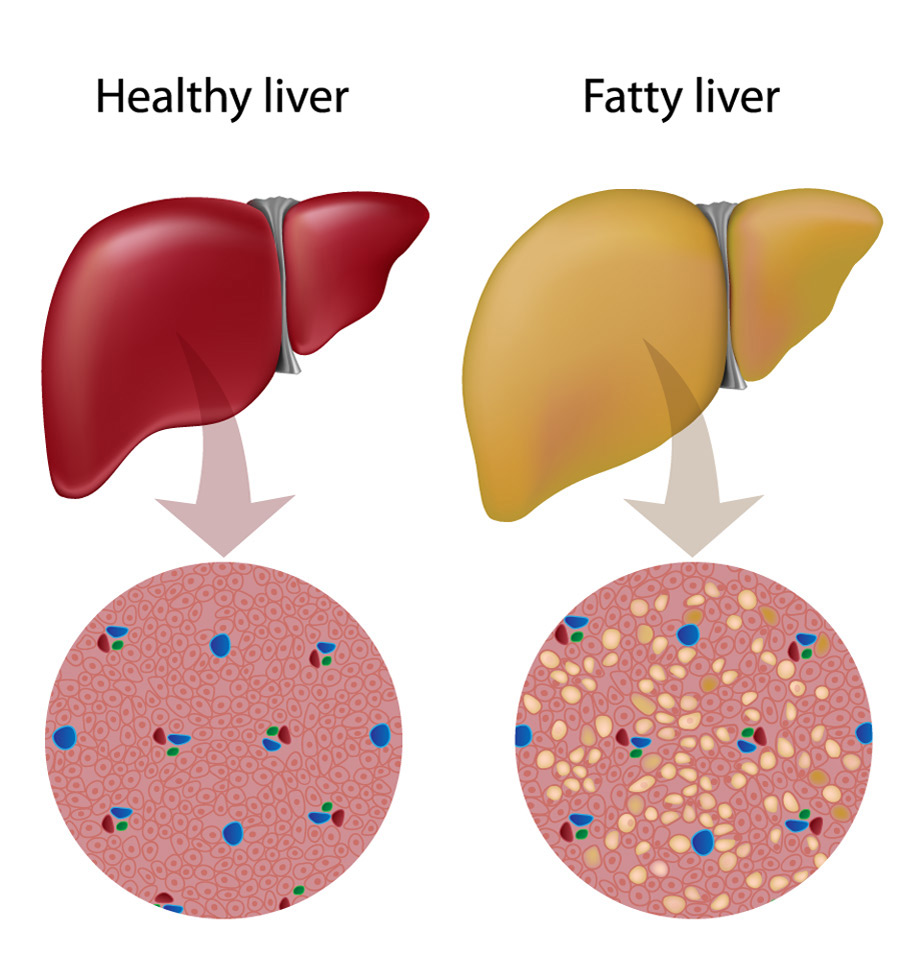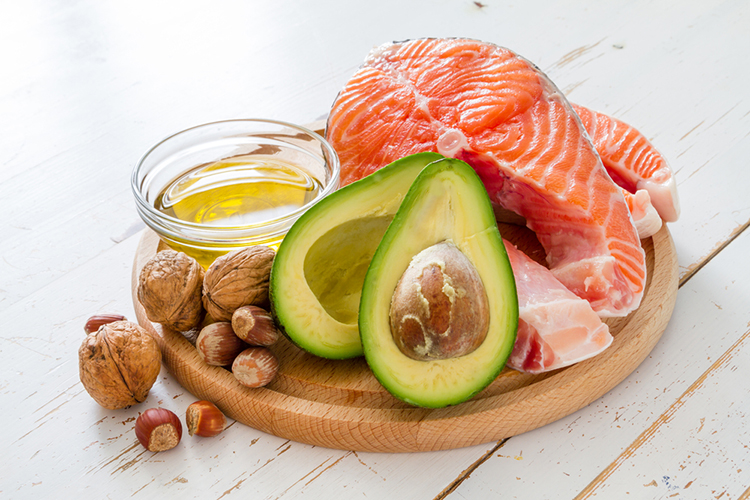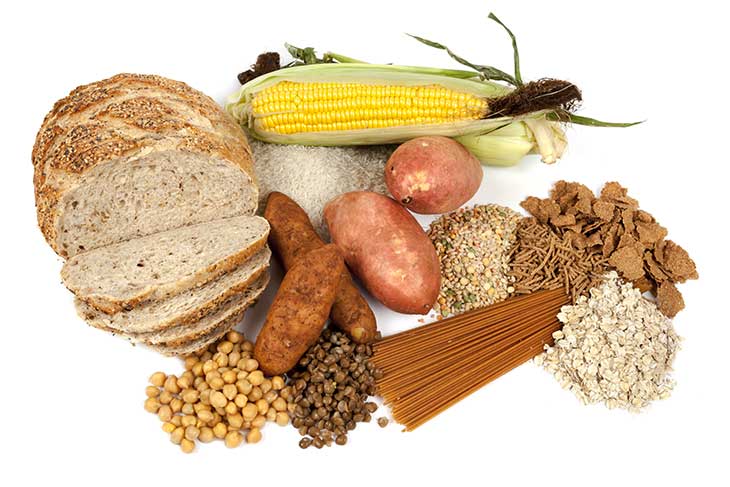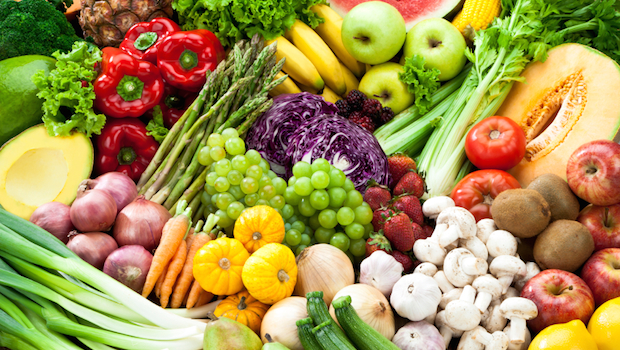Fatty liver disease is a health problem that is growing in frequency. It is essentially when there is excessive fat within the liver and it can lead to a range of problems, including inflammation, scarring, permanent damage, or failure of the liver and even death. The best method of controlling this condition is following a healthy diet and doing regular exercise. This treatment can reverse damage to the liver while eliminating the excess fat in it. Discover what you should be eating when following this diet.

Fatty Liver Diet
The diet is made up of a few key components.
1. Protein

Protein is crucial in any diet, particularly for those with fatty livers. The problem is that a main protein source for the average person is red meat, something which isn’t necessarily good for your liver.
Protein with a fatty liver should involve decreasing your consumption of red meat, while eating more white meat and fish along with alternative protein sources. Some examples to try include:
- Oily fish like sardines, tuna, and salmon
- Sustainably farmed fish
- Organic chicken
- Nuts
- Eggs
- Low-fat cheese
- Legumes
2. Healthy Fats

Trans and saturated fats are bad for the liver, but omega-3 fatty acids and monounsaturated fats are good for your overall health and your liver. Not only do they remove existing fat buildup on the liver, but they also reduce overall body inflammation.
Research has shown that omega-3 fatty acids will protect your liver from the development of non-alcoholic fatty liver disease. These healthy fats can also help remove excess fat from the liver if you already have the disease.
Some of the best sources of omega-3 fatty acids include oily fish like tuna, sardines, and salmon as well as seeds and nuts like flaxseeds and walnuts.
The other healthy fats, monounsaturated fats, include olive oil and others. These have also been shown to help prevent and treat non-alcoholic fatty liver disease, earning their spot on a fatty liver diet.
3. Complex Carbohydrates

As with any healthy diet, those with fatty liver disease should select complex carbohydrates as opposed to refined carbs. Complex carbs will release glucose into your bloodstream slowly, maintaining steady blood sugar levels and preventing insulin resistance from getting worse.
The following are all delicious complex carbohydrates to include in your diet:
- Quinoa
- Legumes
- Whole rolled oats
- Whole grain cereals and breads
- Sweet potato
- Brown rice
While eating complex carbs is better than consuming refined ones, a fatty liver diet should also include consuming fewer carbohydrates overall. Research has shown that reducing the carb intake can help maintain a healthy liver as well as reduce liver fat in the case of an unhealthy liver.
4. Antioxidants

Antioxidants are important as they fight oxidative stress which occurs within cells and is responsible for aging, cancer, and fatty liver disease. Antioxidants are linked to lower levels of excess fat and inflammation of the liver due to fatty liver disease.
A range of antioxidants can be found in most fresh foods. The best way to consume this full variety of antioxidants is eating a range of natural foods in different colors every day. This works well since each fruit or vegetable has its own types of antioxidants.
For example, you will find beta carotene in red and orange foods, including pumpkin, peppers, oranges, carrots, and sweet potatoes. Vitamin C comes from kiwis, strawberries, and citrus fruits. Resveratrol comes from dark foods, including berries, cocoa, and red grapes.
Foods to Avoid with Fatty Liver
Just like some foods are good for a fatty liver diet, others should be avoided whenever possible.
1. Sugar
Sugar has no nutritional value and activates lipogenesis, the production of fat in your liver. Avoid all types of sugar, including in drinks and treats.
2. Items Containing High-Fructose Corn Syrup
High-fructose corn syrup is a common ingredient in soda, cereal, yogurt, bread, juice, and more. Experts believe it is actually the biggest cause of a fatty liver, so it should always be avoided.
3. Artificial Trans Fats
Artificial trans fats, also known as trans fatty acids, inflame the blood vessels and raise your cholesterol levels. They are common in processed foods, under the name partially hydrogenated oils.
4. High-Glycemic Carbs
As mentioned earlier, you should eat complex carbs, but avoid those that are high on the glycemic index on a fatty liver diet. That is because high-glycemic carbs quickly break down into sugar and are usually low in fiber. Avoid regular pasta, corn products, white bread, bagels, and white rice.
5. Processed Grains
On a related note, any grains that are processed should be avoided. Instead, choose whole grains as this will add fiber to your diet. Fiber helps with blood glucose and cholesterol levels, which will help reverse fatty liver disease.
A Diet Sample for Fatty Liver
The following is a sample for your reference.
| Breakfast |
|
| Snack |
|
|
Lunch |
|
|
Snack |
|
|
Dinner |
|
|
Snack |
|
More Tips to Help Manage Fatty Liver
In addition to a healthy diet, the following tips will help manage your fatty liver.
- Lose some weight: Those who are obese or overweight should reduce their calorie intake and increase their physical activity to lose weight. Your doctor can help.
- Be more active: Try to get 30 minutes or more of exercise most days in a week. Get your doctor's approval before beginning an exercise program and start slowly.
- Control diabetes: If you are diabetic, controlling your diabetes can help with fatty liver disease. Follow your doctor’s recommendations regarding medicine, diet, and exercise.
- Protect the liver: Avoid actions and foods that increase stress on liver. This means avoiding alcohol, following instructions on medications, and talking to your doctor about herbal remedies.
